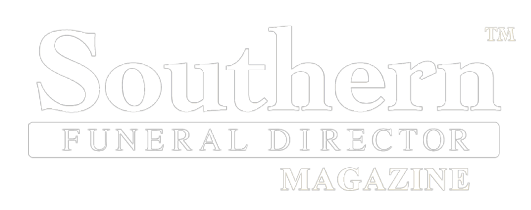(404) 312-6640
SFD’s “Q&A” for the Annual “M&A” Issue with Jake Johnson, Johnson Consulting Group
Is the COVID-19 pandemic still having an effect on succession planning?
Things have slowed down for funeral home businesses. We’ve seen stalled succession planning because people were busy with all the business and daily operations they had going on. For some, April seems to have resumed normal case counts, and we are starting to see that in valuations and analysis that we do, but what comes with that is we have some breathing room to reflect on how businesses are doing. It has given funeral business owners more insight, and an opportunity to reflect on what’s important in life. Now we are seeing an advancement on succession planning, ultimately due to how overwhelming running a business and working through Covid was in the last few years.
What 2 – 3 things do you recommend a funeral business do now if they aren’t planning to sell for another 10 – 12 years?
The first thing they should do now is identify WHY they aren’t planning to sell within the next 10-12 years. They should take account of how their business is currently running, identifying if it’s in peak performance, as well as decide on their personal goals within the next 10-12 years as well. Things can change, so it’s important to think about how the business should be running and what the succession planning strategy is if an owner was to achieve maximum value for their hard work at any given time.
They need to be developing their staff in the meantime and look at how technology can help their business and increase profitability. For example, it’s’ invaluable to invest in a survey software, like Performance Tracker X, that gives you a 360-degree view of your business.
What mistake(s) do you see funeral business owners making related to succession planning now that were not being made 5 years ago?
People are making the same mistakes related to succession planning. Always do a strategic plan and get an outside opinion. A mistake that people make is saying they are “never selling.” If they are never selling, surely, they feel like they will live forever. To me, this is implying they aren’t doing succession planning at the same urgency and necessity as most businesses.
If they are doing succession planning and making mistakes it would be that they aren’t open to feedback and dialogue. Putting together a few Key Company Initiatives (KCIs) that are focused, tangible, measurable, and that there’s people in place to hold each person accountable for reaching KCIs is imperative for a successful business and successful transition.
What help or assistance do you provide to buyers related to the financing options that are available when making an acquisition?
When acquiring, first thing is making sure cashflow is absolutely accurate. You’ll forever regret not having accurate cashflow numbers and benchmarks if you buy the business incorrectly. We also look at things like fixed charge coverage (debt-service coverage ratio) and make sure the financing is correct for the amount of cashflow.
For example, if you have 135k in cashflow per year, then you should probably not try and handle more than 100k in annual debt payment. (Fixed charge coverage of 1.35) Cashflow is an important number, and you need to know how to calculate it. We have financing sources specific to the funeral space to make sure people don’t regret the acquisition upon closure.
There seems to have been an increase in the number of acquisitions since the first of the year. To what do you attribute this?
I attribute it to held up demand. Owners are a bit “beat up”, they can’t find help, they are saying “If I can get a good number I’ll sell”. Right now, everything costs more, rates are low and there’s a ton of money in the marketplace. Cars and homes cost more, funeral businesses cost more. We are seeing several increased acquisitions right now. It’s not captive to our profession, it’s all acquisition activity.
What do you suggest as the first step for funeral businesses in getting started on succession planning?
The first step is to consider whether they will do it themselves or get someone to emcee it. It’s best to get someone from the outside, and JCG does this as a service for businesses. It’s all about strategic thinking and making important decisions for their company.
What’s the biggest thing that can slow down the final agreement from being signed once the two parties agree in principle regarding the sale?
Attorneys. Funeral homes and cemeteries who are selling or buying need an attorney that understand our space. What happens is as businesspeople, we don’t know all the legal side of it, and there’s important parts of that. Attorneys play an important role in facilitation. But they can get so stuck in protecting you and being one-sided, they can end up “poisoning” the deal.
What guidance do you give the sellers (and buyers) related to communicating the news of the pending sale to current employees at the firm being acquired?
If it’s a pending sale, you don’t say anything. While it can be very difficult to not tell people like loyal staff that you’re selling. Even if you have the best intentions, you need to weigh pros and cons. Are you telling them for the benefit of YOU or them? Sometimes you need to tell a few key people who understand the operations and finances better than the owner, but the owner needs to feel comfortable that the person is going to move forward with the new owner. You could offer an incentive to stay, they get a bonus of X% if they stay until “X” date. Perhaps pick a percentage of their salary.
Why should a funeral business consider a “broker” rather than handling the process themselves?
There are a lot of things a funeral home or cemetery owner doesn’t know about value, structure, attorneys, and issues with confidentiality and more. With all the deals we do, we get a higher value that covers the cost of JCG’s services. Anyone who tries to sell on their own will not get as much money as they would working with a broker (guaranteed!). Every buyer says it’s a much easier process to go through a broker like JCG, we keep everything organized and the process easy. Think of it this way: if it’s easier for a buyer to go through the process of buying a business through a broker, why does every buyer not just suggest a broker to sell every business…Bottom line, they would have to pay more (i.e. Seller gets more money).
How do you handle a seller who has an unrealistic expectation regarding the value of his/her firm?
Unrealistic why? Is it because they need more money or the money in a different way? In terms of cash-tocash offers, if buyers say it’s worth 5million but the seller thinks it’s worth 7million, there are different goals. If the goal is 7million we will have to sit down with the seller and come up with strategic plan to get them to 7million. Nothing is unrealistic, it’s just a matter of goal setting and strategic planning.
It’s important to understand if they are going to have a different goal that’s considered unrealistic, then they need to get a valuation today to see where their business is at, and we can build towards that goal number.
Is the sale of the business always about the highest price? How important are things like “good fit”?
It starts with the highest price, and then who is the best fit. Don’t just discount your business because the person interested in the business seems like a “good fit”. Good fits usually reflect in purchase price as well, it’s usually hand in hand. Most buyers want to continue to be involved in the business after the sale, and some purchasers don’t realize that. Start with a valuation and then figure out what you think a “good fit” is for you.
What assistance do you provide your seller related to how to best handle the proceeds from the sale related to finance and tax questions going forward?
We aren’t tax people; we aren’t financial planners. But the things that you want to get more information on are the taxes you’d be paying. Most businesses will be bought as an asset purchase rather than a stock purchase. Figure out what’s the difference of taxes between the two of those and bring the information back to JCG and we can figure out how we can minimize additional taxes on asset purchases. Some strategies even include Stock purchases that can be agreeable to both the seller AND the buyer.
Another thing is looking out how you’ve laid out the real estate of your business, and the depreciation you’ve put on your P&L. Tax variations can include depreciation recapture, asset purchase vs. stock, and considering the allocation of purchase price and the notion of personal good will. Also, how things are allocated to the coveted non-compete because everything is taxed at a different rate.
All of this starts with a valuation and a strategic plan that reflects the four pillars of success that JCG supports: Customer Service, Workplace, Marketplace, and Financial Management. At the end of the day, it’s not what you get, it’s what you keep!
From start to finish, you can count on Johnson Consulting
Whether you recently purchased your business, or are looking to sell, Johnson Consulting can help you at any stage of your business lifecycle. We are a team of highly experienced and reliable professionals who can help you grow your business, maximize its value, and guide you in determining precisely the right time to sell.
Buying
We begin with an in depth analysis of your business buying goals to better understand what success looks like for you. We’ll then work with you to identify which business offers the best opportunity to meet those goals, and guide you through the entire buying process.
Growth
Our team of experienced specialists is focused on helping your business reach its full potential. From planning, to operations, to accounting, we can help you maximize performance and results in every facet of your business.
Valuation
As a business owner, understanding the value of your business is essential to your growth and exit strategy. Our valuation system reveals exactly how much your business is worth at any given time based on its assets, the market environment, and industry trends.
Exit
When the time comes to sell, we’ll offer guidance and support every step of the way. We’ll identify the right buyer and oversee the process to make sure that all of your goals are met at the highest possible selling price.
President & Chief Executive Officer As President & CEO at Johnson Consulting, Jake began his career at Keystone Group Holdings (now Dignity Memorial Network) as Associate Director, Corporate Development, where his financial analysis and forecasting expertise was foundational to the firm’s growth. Jake’s unique ability to problem solve complex business problems and communication leads his success in owning a funeral home and cremation center in Sun City, Arizona.
Jake’s educational credentials include a BSBA degree in Management with an emphasis in Accounting and Financial Analysis from Xavier University in Cincinnati, Ohio. His strong foundation in accounting, financial analysis and EBITDA forecasting is complemented by technology savvy and broad general management qualifications in business development and operations, and will aid in his discussion today.






Comments